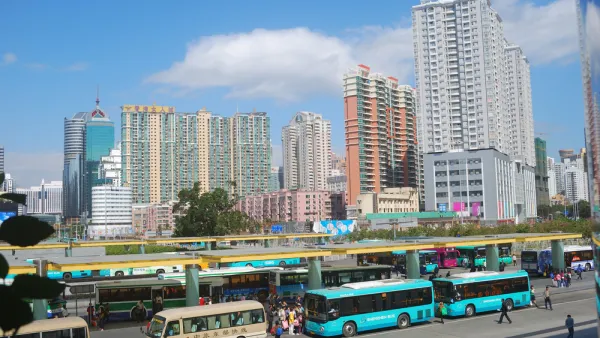The Metropolitan Council has released "The Twin Cities Regional Forecast to 2040: Steady Growth and Big Changes Ahead" to provide a foundation for coordinated planning by the Metropolitan Council and local governments.

Metropolitan Council research staff presented updated regional forecasts to the council at a recent meeting. "The Twin Cities Regional Forecast to 2040: Steady Growth and Big Changes Ahead" completes a regular update of population, households, and jobs in the region until 2040. Regular updates incorporate changes in national forecasts and current assumptions, as well as the most recent data.
The regional forecast shows the Twin Cities region will gain 888,000 residents between 2010 and 2040, a slightly higher population than the previous forecast, bringing the region's population to 3,738,000 by 2040. That total would be equivalent to 57 percent of the state’s population. Most growth will result from natural growth (i.e., more births than deaths). The Twin Cities region will also continue to gain residents through international immigration.
The region will add 495,000 jobs between 2010 and 2040, with more rapid growth in the 2010s and a slower pace in the 2020s and 2030s. Forecasts indicate the region will become more racially and ethnically diverse as well as older. The aging of the population is expected to significantly reshape the housing market, and household sizes will continue to decline. By 2040, one-person households will account for one-third of all households in the region. The population's share of people of color in 2040 will be 39 percent. The number of working-age residents of color will more than double, combined with a near-doubling of children and young adults of color. This will have significant implications for the region's future work force and school enrollments.
FULL STORY: The Twin Cities Regional Forecast to 2040: Steady Growth and Big Changes Ahead

Analysis: Cybertruck Fatality Rate Far Exceeds That of Ford Pinto
The Tesla Cybertruck was recalled seven times last year.

National Parks Layoffs Will Cause Communities to Lose Billions
Thousands of essential park workers were laid off this week, just before the busy spring break season.

Retro-silient?: America’s First “Eco-burb,” The Woodlands Turns 50
A master-planned community north of Houston offers lessons on green infrastructure and resilient design, but falls short of its founder’s lofty affordability and walkability goals.

Test News Post 1
This is a summary

Analysis: Cybertruck Fatality Rate Far Exceeds That of Ford Pinto
The Tesla Cybertruck was recalled seven times last year.

Test News Headline 46
Test for the image on the front page.
Urban Design for Planners 1: Software Tools
This six-course series explores essential urban design concepts using open source software and equips planners with the tools they need to participate fully in the urban design process.
Planning for Universal Design
Learn the tools for implementing Universal Design in planning regulations.
EMC Planning Group, Inc.
Planetizen
Planetizen
Mpact (formerly Rail~Volution)
Great Falls Development Authority, Inc.
HUDs Office of Policy Development and Research
NYU Wagner Graduate School of Public Service



























